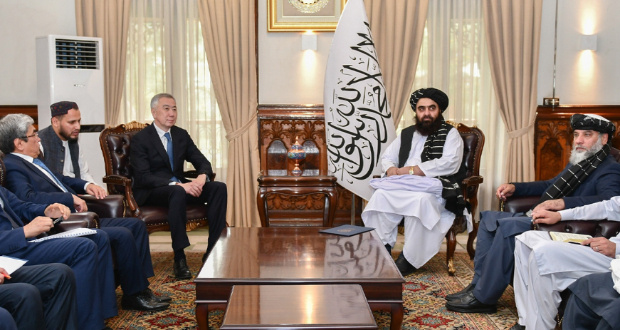Since their return to power in August 2021, the Taliban have made significant strides in regional diplomacy, particularly in Central Asia. Most recently, on 20 July 2024, Taliban officials met with representatives of Kazakhstan and Turkmenistan to discuss the construction of a new railway line from Turkmenistan through Afghanistan to Pakistan. Initially met with scepticism and caution, the Taliban has cultivated significant inroads into Central Asia through strategic diplomacy, economic engagements, and infrastructure projects. Mutual interests in economic prosperity, connectivity, and stability primarily drive this shift.
The conflicts between Russia and Ukraine and in the Middle East have further compelled the Central Asian Republics to adopt a conciliatory approach toward the Taliban-led Islamic Emirate of Afghanistan (IEA).
The conflicts between Russia and Ukraine and in the Middle East have further compelled the Central Asian Republics to adopt a conciliatory approach toward the Taliban-led Islamic Emirate of Afghanistan (IEA). Sharing a 2,387-km porous border with Afghanistan, Central Asian countries have realised that imposing sanctions on the Taliban regime will only escalate the conflict. The presence of approximately 3,000 fighters from terror groups such as the Islamic Movement of Uzbekistan, Islamic Jihad Union, Jamaat Ansarullah, and the Islamic State of Khorasan Province in Afghanistan further complicates this engagement.




